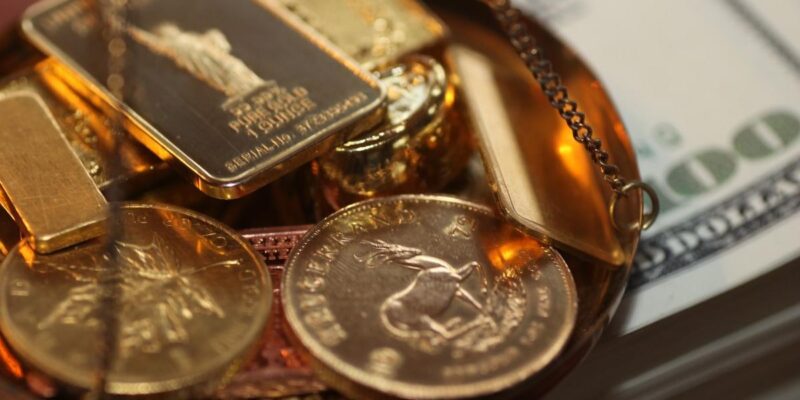
The middle class in all developed economies is disappearing through a constant process of erosion of its capacity to climb the social ladder. This is happening in the middle of massive so-called stimulus plans, large entitlement programs, endless deficit spending, and “social” programs.
The reality is that those who blame capitalism and free markets for the constant erosion of the middle class should think better of it. Massive money printing and constant financing of larger governments with new currency have nothing to do with capitalism or the free market; it is the imposition of a radical form of statism disguised as an open economy. Citizens who hail the latest government stimulus plan fail to understand that the government cannot give you anything that it has not taken from you before. You get a $1,000 check, and you pay three times over in inflation and real wage destruction. That is why a group of economists and experts have launched the Honest Money Initiative. To stop the destruction of the fabric of the economy, the middle class, and businesses via constant debasement of the currency that governments monopolize.
Citizens rarely understand inflation. Many believe that inflation is equivalent to rising prices and therefore blame those who place the tag on a product for the loss of purchasing power of a currency. However, inflation is caused by more units of currency going toward the same number of goods and services. Printing money above demand is the only thing that makes prices rise in unison. If a price rises due to an exogenous reason but the quantity of currency remains equal, all other prices do not rise.
Citizens’ misinformation about inflation is not their fault. There is an army of so-called experts aligned around governments trying to convince them that inflation is caused by anything and everything except the only thing that can make aggregate prices rise at the same time: devaluing the purchasing power of the currency. To allow governments to bloat their size in and out of crises, you must be convinced that the quantitative theory of money does not exist. Money supply times the velocity of money equals the price level, or inflation times the real output of the economy. More money in the system creates higher inflation. The way to convince you that the previously mentioned theory does not exist is to tell you that between 2009 and 2018, there was no inflation, yet the money supply grew significantly. This argument ignores that in that same period, healthcare, childcare, housing, and other non-replaceable goods and services rose an average of 57% according to the AEI, as did the enormous asset price inflation created from real estate to stocks and bonds when money velocity was plummeting.
There is no such thing as “cost-push inflation”, commodity inflation, or supply-chain inflation. There are always more units of currency going to relatively scarce goods and services. Think about it for a second. If suddenly the price of oil rises abruptly for an exogenous factor, like a war, and the quantity of currency is the same, citizens would have less money to purchase other goods and services. The only way in which one cost creeps its way to the final price of a good is if the units of currency issued are rising faster than economic output.
Imagine a twelve-inch stick. You and I understand its size because the unit of measurement does not change. Now imagine that the government and the central bank changed the unit of measure at will. The same stick would be twelve, twenty, or thirty inches, depending on how the measuring unit is manipulated.
Inflation is the perfect and most immoral of taxes because governments and politicians place the blame on supermarkets, service stations, corporations, or foreign producers and present themselves as the solution to the problem these governments have created. Inflation is the constant loss of purchasing power of the currency issued by the government.
Citizens do not understand inflation because most cannot imagine why the government would want them to be poorer. Inflation is the transfer of wealth from savers and real wages to indebted governments. It makes the size of government in the economy larger and erodes the wealth of the private sector. Why?
The artificial creation of new units of currency is never neutral. It disproportionately benefits the first recipients of the new units, government spending and the deficit, and massively hurts the last recipients of money: real wages and savings. It is, in essence, a process of stealth nationalization of the economy.
Government size rises massively in crisis times because “they have to spend” and rises further in recovery times as taxes rise and “extraordinary” spending plans are consolidated and perpetuated while the tax wedge only rises and inflationary pressures persist.
Some want to believe that artificial money creation comes from private banks, not central banks. It is easy to debunk. Make the central bank stop purchasing government bonds, bloating its balance sheet, printing money out of thin air, and manipulating the price of money (interest rates), and we will all see how private banks do not expand the money supply exponentially. Even central banks call it “the transmission mechanism” of monetary policy, and that is why they monitor credit growth as a positive development no matter the accumulated risks.
In his book The Economic Consequences of the Peace, John Maynard Keynes wrote, “Lenin is said to have declared that the best way to destroy the capitalist system was to debauch the currency. Through a continuing process of inflation, governments can confiscate, secretly and unobserved, an important part of the wealth of their citizens. By this method, they not only confiscate, but they confiscate arbitrarily, and while the process impoverishes many, it actually enriches some. The sight of this arbitrary rearrangement of riches strikes not only at security but also at confidence in the equity of the existing distribution of wealth”.
Citizens are being robbed of their ability to climb the social ladder through constant financial repression and tax increases. Of course, we are always told that all spending increases will be paid by “the rich”, the modern cornucopia myth that is supposed to cover all the government imbalances and finance every entitlement plan forever. Obviously, those who are fooled by the promise of eternal government free money paid by “the rich” face the harsh reality of paying for the government’s “generosity” multiple times over in lower real wages, lower disposable income, and higher inflation.
The Honest Money Initiative was created to remind citizens that there is no such thing as the cornucopia of the magic government money tree. The reason why it is crucial now is because society seems powerless at the sight of yet another multi-trillion-dollar spending plan financed with currency printed out of thin air.
In The Theory of Money and Credit, Ludwig Von Mises explains: “The sound-money principle has two aspects. It is affirmative in approving the market’s choice of a commonly used medium of exchange. It is negative in obstructing the government’s propensity to meddle with the currency system.” Mises goes on to explain that sound money is a crucial instrument for the “protection of civil liberties against despotic inroads on the part of governments·, as important as the constitution, independent institutions, and the system of checks and balances that protects citizens in a democratic society”.
A currency needs to be a reserve of value, a unit of measure, and a generalized means of payment to be money. The reason why central banks print it out of thin air is to disguise the enormous and rising imbalances of governments. As the process becomes unstoppable, the independence of central banks is not only in question but widely denied. Governments do not want independent central banks because they prefer to increase deficits and control the economy at the expense of citizens’ savings and wages, believing it is for their own good. Currency manipulation is not a tool for growth; it is a tool for control and cronyism. That is why governments count on some powerful allies in the process of complete control and statism. Making you poorer also makes you vulnerable and dependent on an ever-increasing state that promises free wealth and freedom but delivers poverty and repression.
The destruction of the currency is inevitable if honest money is not implemented.
Sound money is as important as independent institutions. It protects the citizen from the perverse incentives of governments to pass their imbalances to the population, and it is essential to guarantee the essence of liberty, which is economic freedom.








